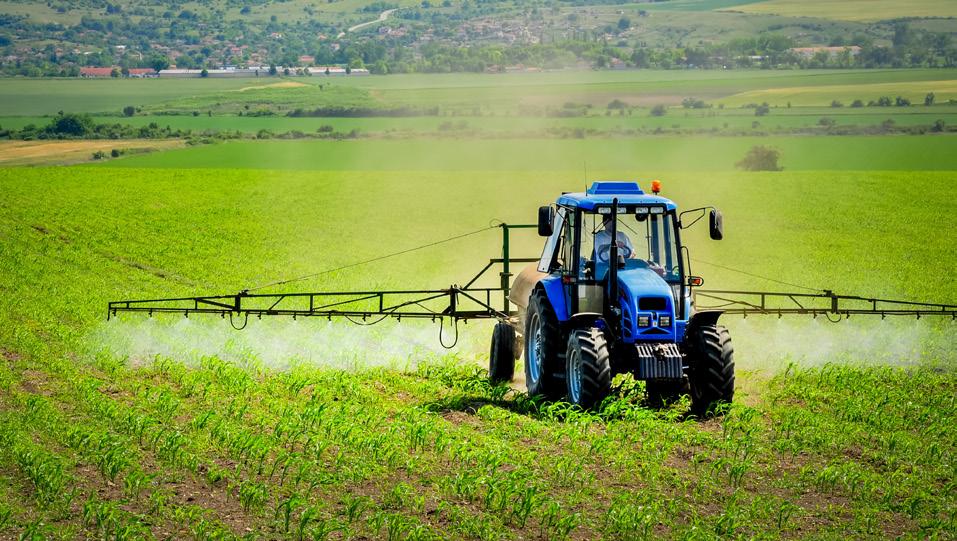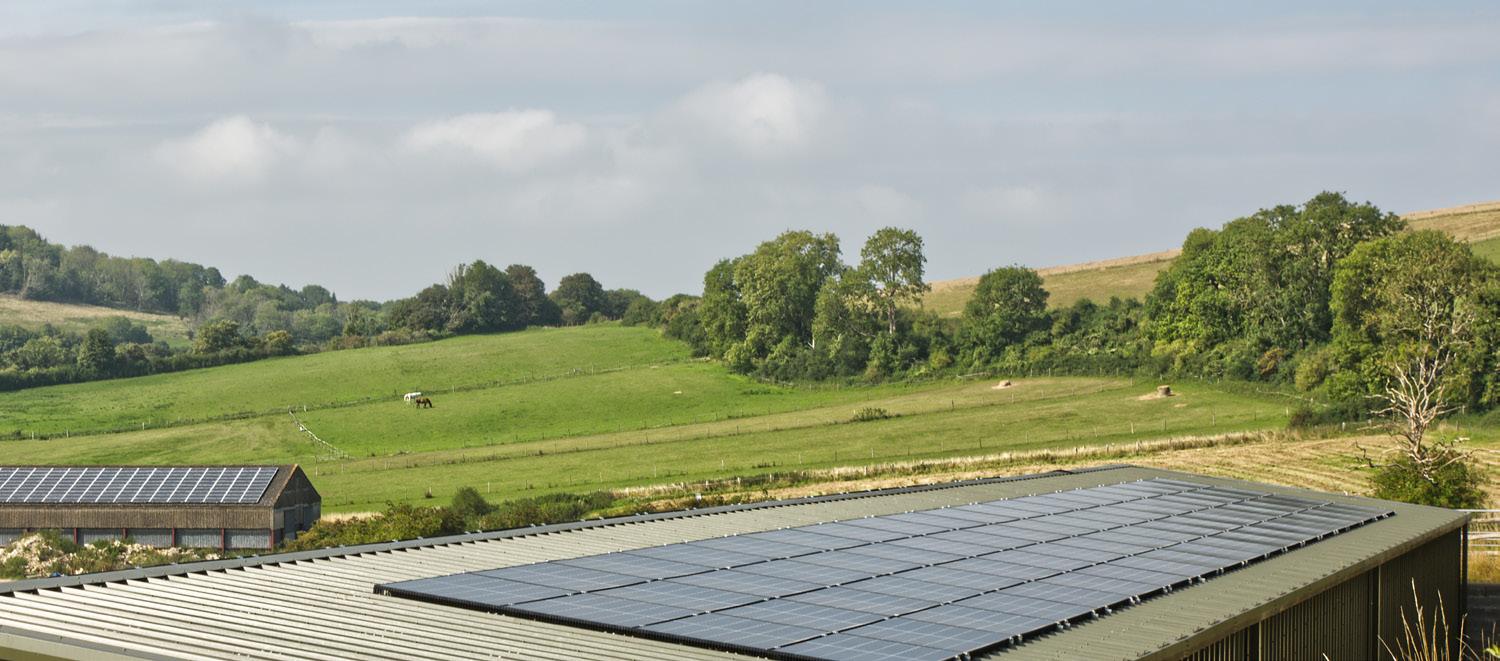Rural Round-up









UK aggregate sales expected to fall by 1% in 2024, with a 2% rise expected in 2025.
Fisher German have successfully secured over £100,000 in grant funding for rural businesses and farm diversifications through the Rural England Prosperity Fund
Renewable energy generation was 4.9% higher in Q4 2023 than in Q4 2022 – Government Report March 2024
only marginally higher than in 2022, this was largely driven by the 0.8 GW in new capacity. Although Solar PV generation didn’t achieve an all-time quarterly record, a fourth quarter record was set
Overall renewable generation was 4.9 per cent higher than in Quarter 4 2022 and at 39.9 GWh, was second only to Quarter 1 2020, when Storms Ciara and Dennis hit the UK.

Taken from Energy Trends March 2024 by the Department for Energy Security and Net Zero www.gov.uk/government/statistics/energy-trends-section-6-renewables
With the exception of 2021, renewable generation has been largely stable since 2020, a year notable for very strong winds, high rainfall and higher than average sun hours. The drivers of changes in generation are complex for renewables with the impact of new capacity interacting with variable weather conditions, and more recently outages at large biomass power stations. Chart 6.1 shows change in generation for 2021 to 2023 compared to 2020. The favourable weather conditions in 2020 were reversed in 2021 driving down generation for all weather dependent technologies Wind speeds and rainfall also remained lower in 2022 but new offshore wind capacity more than offset this impact. Similarly for solar PV, high growth in capacity compensated for the lower sun hours in 2023 compared to 2020
Fisher German’s private screening of Six Inches of Soil film spotlights regenerative farming techniques working in harmony with nature
Fisher German hosted a private screening of the film ‘Six Inches of Soil’ at the Everyman Cinema in Stratfordupon-Avon where guests were given an exclusive insight into the world of the farmers, communities, small businesses, chefs and entrepreneurs who are leading the way to transform how food is produced and consumed.
The film tells the inspiring story of young British farmers standing up against the industrial food system and transforming the way they produce food. It explores the methods of regenerative agriculture that restores soil and ecosystem health, addresses inequity, and leaves our land, waters and climate in better shape for the future.
While approximately 178,000 farmers work in the UK to manage 71% of the UK’s land, this provides only half of the food we eat, requiring us as a nation to import the rest. Current farming practices significantly contribute to soil degradation, biodiversity loss and climate change. Regenerative farming practices, within an agroecological system, promote healthier soils, provide healthier, affordable food, restore biodiversity, and sequester carbon.
‘Six Inches of Soil’ is a story of three new farmers on the first year of their regenerative journey to heal the soil and help transform the food system: Anna Jackson, a Lincolnshire 11th-generation arable and sheep farmer; Adrienne Gordon, a Cambridgeshire small-scale vegetable farmer; and Ben Thomas, who rears pasture-fed beef cattle in Cornwall. The trio of young farmers strive to adopt regenerative practices and create viable businesses as they meet various mentors who help them on their journey. They are joined by other experts providing wisdom and solutions from a growing movement of people who are dedicated to changing the trajectory for food, farming, and the planet. The farmers navigate a broken food system, farming in a landscape degraded by industrial
agriculture, and learn how to reconnect people with the soil, where their food comes from and how it is produced. They explore the connection between food and health, food poverty and affordability, and the role animals play in the farming system. Euan McKenzieRhodes, Principal Surveyor and Property Manager at Severn Trent, attended the private screening; he said: “The film was very enlightening and provided valuable insights into regenerative farming practices and underscored the critical role of soil health in sustainable agriculture. It’s great to see businesses like Fisher German championing conversations around sustainable food production and cultivating awareness.”
Helen Hunt, Executive Assistant to the CEO of the Alscot Estate, said: “The film was very engaging and thoughtprovoking, and although it was made for farmers it should be watched by everyone, especially when it seems that the nation has become disconnected from where our food comes from.”
Kerry Murray, Co-Director of Murray Environmental, said: “The film illustrated the impact that the power of soil has on our environment, from supporting biodiversity to mitigating climate change, and provided a useful reminder of the innovative regenerative agricultural practices to improve soil health and climate resilience.”
Fisher German are advising land owners of the importance of improving soil health. If you wish to discuss this further please do get in touch with our Agribusiness team.

Find out more about our agribusiness consultancy services.
Our Head of Agribusiness, David Kinnersley, added:
“The film is a great illustration of the challenges and opportunities facing farmers at the moment. We are fortunate to be advising a range of clients pioneering new farming methods, some of whom have been on this journey for over a decade now. ‘Six Inches of Soil’ will help to spread the word and I hope to educate those who have little interaction with those who grow their food.”


Rebecca Ruck-Keen 01234 827118
The beginning of 2024 brought with it the end of Basic Payment Scheme (BPS) and cross compliance. But as one door closes, another opens; and at the Oxford Farming Conference early in January, the Environment Secretary Steve Barclay announced a number of changes to the government’s Environment and Land Management schemes (ELMs). These announcements included an average 10% increase in the SFI and Countryside Stewardship (CS) payment rates, as well as 50 new actions to be added to ELMs from summer 2024.
With effect from this summer, short-term lets will require planning permission, giving local authorities an opportunity to control the density of short-term lets in communities. In the Spring Budget the Chancellor announced the abolition of the beneficial Furnished Holiday Let tax regime from April 2025, broadly meaning that FHLs will now be treated the same way as long-term lets for tax purposes. No doubt these measures have been introduced partly as a reaction to the shortage of housing stock.
Factors affecting rural property are many and varied and, coupled with an election year, rural property owners need to keep their wits about them!

David Kinnersley 01530 410806
The wet weather in later winter and early spring has had a serious impact on farms whether impeding crops in the ground, making spring planting look increasingly unlikely or turning livestock out at a gamble. Budgets aren’t looking good, so reducing business risk by entering into the Sustainable Farming Incentive (SFI) has been at the forefront of clients’ minds. Despite the introduction of the ‘capping’ of certain options at 25% of total land area, there are plenty of options to choose from. The requirement to put up to 20% of arable into ‘set-aside’ in the 1990s under Integrated Administration and Control System (IACS) saw relatively little reduction in crop output as all the worst land was set-aside. I suspect that the impact of SFI will be similar once everyone has got used to the scheme. It is a useful tool, however, to improve soil health with payments for cover/catch cropping etc.
Current weather patterns have perhaps made us all reflect on climate change and potentially increasing weather-related risks for farming and what else we can do to manage it.

Darren Edwards 01858 411 236
There has been time to reflect on the UK’s energy position in 2023, and an underlying trend is the fall in household consumption for both gas and electricity with overall household consumption at its lowest in the last 50 years. Renewable energy production from wind, solar and hydro has increased by two per cent but these renewable technologies contribute less primary energy than fossil fuels.
The UK continues to drive the production of renewable energy, and the opportunity for rural landowners to contribute to this will be vital to working towards greener targets. At Fisher German we look to connect landowners and renewable energy developers in addition to assisting rural business owners with their own renewable energy production for self-use. There are many options available so please do get in touch with our Green Energy & Sustainability Team.

Tom Beeley 01858 411227
The first quarter of 2024 saw the introduction of mandatory Biodiversity Net Gain (BNG), impacting planning applications for large development submitted after 12 February. This has seen an increase in demand for offset units and a need for advice around the planning process. We anticipate demand to increase further as BNG is rolled out to small-scale applications with effect from 2 April. The government provided helpful clarification around the application of Agricultural Property Relief (APR) to environmental gain sites – a common query – which has provided additional confidence. We continue to provide independent advice to our clients, and are assisting a number of them to explore habitat bank development which looks set to provide good opportunities for long-term diversification into habitat provision.


The anticipated increase in supply of land and farms to the market in Q1 2024 has come to fruition with a significantly higher volume of acres advertised compared to the same period last year.
Whilst the weather has held back many advertising campaigns in early 2024, those are now coming forward with further supply expected through May and June.
We remain confident that the number of existing non-agricultural and lifestyle/ amenity-based buyers will hold demand levels firm, albeit with a generally more cautious approach.
The number of private transactions taking place is increasing and, based on those in which we have been involved, buyers have acted swiftly and firmly to secure local
opportunities without having to compete against the wider market. We are recording significant premiums being paid where opportunities arise on the doorstep or within a short travelling distance and allow the purchaser to spread their fixed costs.
Farmland remains a key asset class of interest for many private and corporate investors. With existing inheritance tax reliefs and the emerging natural capital economy, we remain confident that this asset class will show great resilience in the medium and long term.
If you are considering a sale in 2024, early preparation is key. Please do not hesitate to contact us, in confidence, to discuss your objectives and we will be delighted to advise accordingly.


Sarah DeRenzy-Tomson
01530 566578
One of the key headlines from planning is that securing biodiversity net gain (BNG) through the planning system has now been enacted! As part of a planning application there is a requirement to demonstrate 10% BNG. This came into effect from 12 February 2024 for all new ‘major applications’ and 2 April 2024 for all ‘small sites’. There are exemptions and these include ‘de minimis’ development (where it does not impact a priority habitat and impacts less than 25sqm habitat or 5m of linear habitats such as hedgerow), householder applications and biodiversity gain sites, for example.
The Department for Levelling Up, Housing and Communities has launched a new consultation on ‘an accelerated planning system’. This consultation is extensive and seeks views on a raft of issues including a new accelerated planning service for major commercial applications with a decision time in 10 weeks and fee refunds if this is not met. It is also consulting on significantly scaling back the use of extensions of time including ending their use for householder applications and only allowing one extension of time for other developments. It will be interesting to see which, if any, of these recommendations are taken forward.

William Gagie
01530 410859
Aggregate sales in 2023 held up well due to the volume of commercial development and infrastructure schemes; however, the continuing weakness in the housing sector has seen a reduction in mortar and brick sales.
Overall values have remained stable and the demand for new aggregate sites is at an all-time high as operators continue to seek to replenish their reserves.
The use of recycled and secondary aggregate continues to rise with a recent focus on exploiting PFA (Pulverised Fly Ash) resources by cement producers.
Any alteration to the planning system with a change in government could have a significant impact on the demand for aggregates. At Fisher German we can assist rural landowners in understanding their mineral rights and what type of mineral they own.

Kate Mason 01244 567705
There are already a number of changes that are affecting our rural landowners. From the implementation of 10% BNG for all ‘major applications’ and ‘small sites’ to the continuing demand for new aggregate sites, there is a significant opportunity for rural landowners.
Change for rural landowners will continue to have a direct impact on their enterprises and therefore income. It is critical to see this time as a chance to review current practices and establish whether the assets owned are being utilised to provide maximum output.
A land zoning exercise assists landowners to individually assess whether the current land use is the most suitable or if there are alternative opportunities. If underperforming land uses are identified, the zoning exercise can release areas of land for more advantageous uses.
At Fisher German we provide a strategic review service to highlight areas of opportunity in order to support estate or farm business strategy and ensure future resilience.
In his Spring Budget, Chancellor Jeremy Hunt announced that Agricultural Property Relief (APR), which allows inheritance tax to be reduced when a farmer passes on agricultural land after death, will also apply to land used for environmental schemes. We caught up with one of our agribusiness farm consultants, Carrie Marshall, to learn more about why farmers need to carefully consider the extent to which they enter new environmental schemes following the Chancellor’s announcement.
Tell us more about the current situation
Many rural businesses have been awaiting clarification of the APR policy to consider to what extent they use schemes such as the Sustainable Farming Incentive (SFI), but farmers need to have a balanced approach between environmental projects and land devoted to food production.
Why is it important that farmers consider all of their funding options?
With the phasing out of the Basic Payment Scheme (BPS), farmers need reliable sources of income more than ever. The SFI scheme is a great new way for farmers to have a steady stream of cash coming into their businesses, but some were holding back on large environmental schemes because APR may not have applied to that land.
The Chancellor has clarified that land in environmental schemes will be eligible for APR, and although a tax advisor should still be consulted, many farmers may now be looking to increase the area of land they are planning to enter a scheme – but farmers need to take a balanced approach between food production and environmental schemes.
Why should they look at several funding options rather than committing to just one scheme?
It’s important to remember that the SFI scheme isn’t written in stone – it’s a government policy that could be taken away after the next election, or funding could be reduced at any time. Farmers should be wary about committing their whole farm to an SFI scheme and selling surplus machinery.
Additionally, prices for commodities like wheat can be highly variable, with the war in Ukraine and the price of fuel all contributing to this uncertainty. One year, crops may bring in lots of money, while in other years prices may drop. Having unproductive land used for environmental schemes that bring in steady cash, while saving more productive land for crop growth, is often the best strategy to balance the risk.
Funding can help farmers to have a steady income, but why is it important they look at the schemes in detail and not just at the headline income figure?
While environmental schemes bring in SFI payments, there can often be high costs involved with some of the options so it’s important to look further than just the headline income figure. It is a great
opportunity to optimise farm production and profitability. There is not a one-sizefits-all solution that maximises value, so we would encourage farmers to seek expert advice before starting a new environmental scheme on their land.
How do government policies need to change to encourage farmers to look at ways to devote land to food production?
Aside from the monetary value, government policy must encourage farmers to devote land to food production and to farm innovatively and efficiently, such as embracing technology to drive down some of their costs. There is a wide range of efficiency and productivity across farming businesses, and when undertaking benchmarking analysis, there is a clear correlation between financial results and efficiency.
Our country needs to strike the right balance between growing our own food and protecting our environment, and farmers play a vital role in achieving both of these goals. While incentives to care for the environment are undoubtedly important and can now provide a solid income for farmers, future governments must ensure grants relating to efficient food production and equipment upgrades are not overshadowed in the process.






